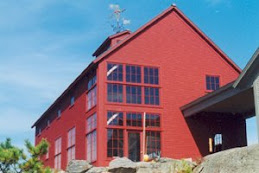
Our solar (hot water) panels were installed in the finals days of 2009. We've been running our system, as designed, for two weeks using the sun to heat our water for both domestic hot water use and space heating. We have four SunMaxx solar panels which consist of 20 evacuated tubes per panel. For those who want more technical information on evacuated tube collectors, please use the link and I won't bore the rest of you with details. We chose the evacuated tube (ET) collectors over the more common flat plate collectors for two reasons: 1) the ET collectors are much more efficient in cold and overcast/cloudy conditions and would, therefore, be better in the winter when we need hot water for heating our house, 2) to get the btu output needed for space heating we would have needed 10 flat plate collectors to do the same job, requiring much more space and sun exposure. I may get disagreements from experts on this, but it seems that flat plate collectors, which produce lower water temperatures, are great for domestic water heating only. ET collectors can produce very high temperature water (170 degrees) so your system must be designed to accommodate this. Our system is designed to store the high temperature water and then uses several water mixing valves that cool the water before it enters PEX tubing either for domestic use or in the radiant tubing. It's what is called an open system where domestic water actually goes through our radiant tubing, where it is cooled (heat transferred to the floors) and returns to the system either through the mixing valves or to the bottom of the storage tank to be used again. Moving backwards in the system, our tank is an Eltron Steibel solar tank with two coils (heat exchangers) inside. The bottom coil is where the solar loop transfers it's heat and the top coil is where the backup heat enters via a Takagi on-demand water heater. Here is a general schematic of the system; ours is the second to last picture on the page titled "Open System with Solar Tie-in".







No comments:
Post a Comment